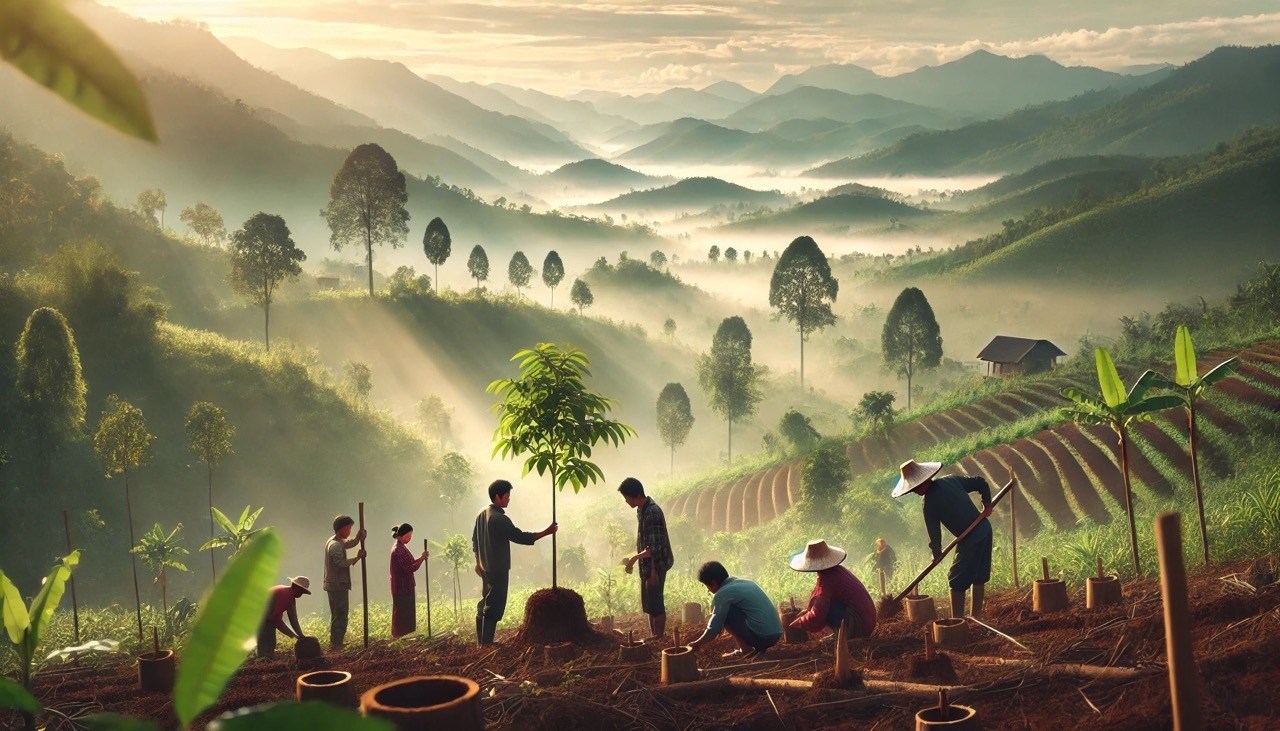
How i first got introduced to the Carbon Market.
Growing up in Thailand means that every January until May meant hazy air, coughing fits and watery eyes as a result of the Slash and Burn practices up in the north.
I grew bitter, of the administrations that were supposed to be responsible, at those burning the forests. Isn't the solution as simple as using tractors and fertilizers? The decision shouldve simple, when the action of a few led to the suffering of many.
That's what I thought. Until June of 2024.
I traveled to Chiang Mai for an internship with Hazefree, a social enterprise dedicated to helping small rural farmers transition to environmentally friendly agriculture. My journey took me deep into Mae Awfje, where I met a group of sustainable farmers whose mission that day was to plant 200 trees.
It was there that I finally understood the nuance of the issue. For many farmers, slash-and-burn isn’t just a choice—it’s survival. The method requires minimal labor, and the ash from burning acts as a natural fertilizer.
While they were aware of the environmental consequences, they admitted that the full scale of the damage often felt distant and incomprehensible.
That changed when Hazefree stepped in, offering forward planning opportunities and targeted market approaches for carbon-free farming. With a clear path forward, these farmers made the switch, proving that with the right guidance, sustainability isn’t just possible—it’s practical.
This experience moved me deeply. Too often, those who would benefit most from sustainable solutions are the last to gain access. While large corporations can afford to adopt eco-friendly practices, small-scale farmers are left behind.
My goal is a student-ran organization is to educate the new generation on the possibility of carbon markets and a green world, because real change starts when sustainability is accessible to everyone